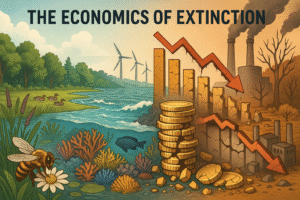In the realm of modern economics, few names stir as much debate as Thomas Piketty. This French economist rose to prominence with his 2013 book, “Capital in the Twenty-First Century,” which delves into the intricate and contentious issue of wealth and income inequality. But who is Piketty, and why do his ideas matter?
Piketty’s Central Thesis: Piketty’s core argument is both simple and groundbreaking. He posits that the rate of return on capital in developed nations often surpasses the rate of economic growth. This disparity, he argues, inevitably leads to increasing wealth inequality. Piketty backs his claim with extensive historical data, examining trends from across centuries and continents.
Global Impact and Controversy: Upon its publication, Piketty’s book sparked a global conversation about wealth disparity. However, it also attracted significant controversy. Critics questioned his methodology and conclusions, debating the implications of his analysis on global economic policy.
Piketty’s Policy Recommendations: Central to Piketty’s narrative is his bold solution – a global tax on wealth. He suggests that such a tax could counteract the trend of escalating inequality. However, this proposal has been met with skepticism regarding its practicality and potential economic repercussions.
Critiques and Counterarguments: Critics of Piketty often argue that he underestimates how entrepreneurial innovation contributes to wealth creation, suggesting that his view is overly simplistic. Moreover, the idea of a global wealth tax, while appealing in theory, faces numerous logistical and political challenges.
Piketty’s Influence in Modern Economics: Despite the critiques, Piketty’s influence on modern economic thought is undeniable. His work has reinvigorated discussions about economic inequality, influencing policymakers and academics alike. However, the reception of his ideas varies widely, reflecting the diverse political and economic landscapes across the globe.
Conclusion: Thomas Piketty’s work remains a crucial part of the conversation in today’s economic landscape. Whether one views him as a champion of economic equality or a misguided economist, his influence on how we discuss wealth and inequality is undeniable. As we grapple with these ongoing issues, Piketty’s work challenges us to consider the kind of economic future we want to create.
Further Reading and References: For those interested in delving deeper into Piketty’s work or the broader topic of economic inequality, a wealth of resources is available. Piketty’s own books, including “Capital in the Twenty-First Century,” are a good starting point, complemented by various critiques and analyses from other economists and scholars.





Comments
Your point of view caught my eye and was very interesting. Thanks. I have a question for you.
Your article helped me a lot, is there any more related content? Thanks!
Your article helped me a lot, is there any more related content? Thanks!
Thanks for sharing. I read many of your blog posts, cool, your blog is very good.
Thanks for sharing. I read many of your blog posts, cool, your blog is very good.
Thanks for sharing. I read many of your blog posts, cool, your blog is very good.
I don’t think the title of your article matches the content lol. Just kidding, mainly because I had some doubts after reading the article. https://accounts.binance.com/es/register-person?ref=T7KCZASX
Thanks for sharing. I read many of your blog posts, cool, your blog is very good.